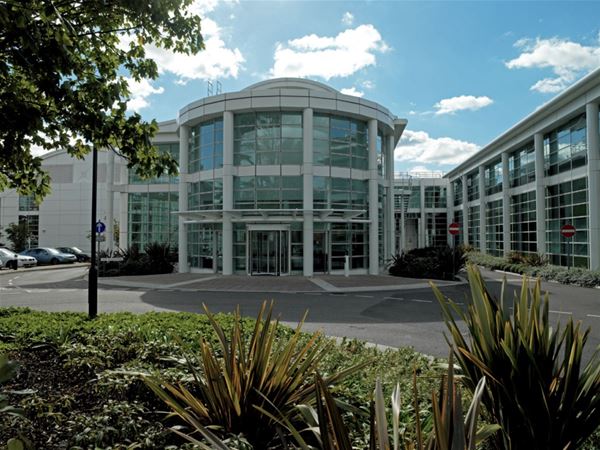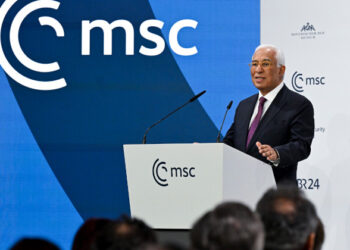The National Physical Laboratory (NPL), today announces the selection of three innovation nodes in partnership with the University of Strathclyde, University of Surrey, and Cranfield University. These innovation nodes are being developed in partnership between NPL and the host organisations and will enable the application of timing and frequency across any sector.
National Timing Centre (NTC) announcement
These locations, chosen based on industry sector engagement potential, location, and suitability of facilities and connectivity, are being announced concurrently with £4.7m of grant funding being made available through the National Timing Centre programme together with Innovate UK, part of UK Research and Innovation (UKRI). The competition is for feasibility and demonstrator projects that contribute to resilient time, frequency and synchronisation and its dissemination and application. Successful applicants will be able to access traceable signals from these innovation nodes as part of their project to enable the development of new products and services.
NPL is the home of UK time and from here accurate timing, traceable to UTC(NPL), is supplied to key locations. The National Timing Centre (NTC) programme is paving the way for trusted and assured time and frequency across the UK, by developing the first nationally distributed time infrastructure, which will aid the acceleration of new technologies such as time-critical 5G and 6G applications, factories of the future and connected autonomous vehicles. The announcement today brings this one step closer.
The three innovation nodes, will each provide a combination of traceable timing signals and laboratory space for industry R&D, testing and validation of products and applications. The aim is to support business-led innovation, stimulate the UK supply chain and UK capability in this domain.
Dr Leon Lobo, Head of the National Timing Centre (NTC) Programme, said: “The NTC innovation nodes are a significant step toward understanding the requirements for access to resilient, GNSS-independent and traceable time and frequency, for our current and future use cases. We are pleased to be partnering with the host organisations for these nodes, supporting the research and industry ecosystems in place develop the supply chain for new products and services, toward an enduring and sustainable capability.”
Professor Iain Gray, Director of Aerospace at Cranfield University said: “We’re delighted to be partnering with the NPL to set up this innovation node. The project will enable further integration of the world-class research and development capabilities at Cranfield’s global research airport with our unrivalled links to business and industry, creating innovative products and applications for aviation and autonomy.”
Regius Professor Rahim Tafazolli, Director of ICS, 5G/6G Innovation Centre at the University of Surrey said: “We are excited about the timing innovation node at the University of Surrey’s 5G/6G Innovation Centre. Thanks to our strategic partner NPL, this timing capability complements our unique 5G testbed facility and will enable us and our industry partners to carry out advance experimental research and innovation on 5G and 6G time critical applications and use cases.”
Professor Erling Riis, Physics Department at the University of Strathclyde said: “As one of NPL’s strategic partners, the University of Strathclyde is delighted to host a new NTC innovation node. The University of Strathclyde works on atomic and quantum-based timing in the UK National Quantum Technologies Programme. The new NTC Innovation node, located within the Glasgow City Innovation District, will complement our world-leading research and make precision timing more easily accessible to industry and form an important new asset for Scotland, the UK and beyond.”
Press contact
Charlotte Blake
Corporate Communications Leader
National Physical Laboratory
020 8943 8713
0773 889 6090
charlotte.blake@npl.co.uk
About NPL
NPL is the UK’s National Metrology Institute, providing the measurement capability that underpins the UK’s prosperity and quality of life.
From new antibiotics to tackle resistance and more effective cancer treatments, to secure quantum communications and superfast 5G, technological advances must be built on a foundation of reliable measurement to succeed. Building on over a century’s worth of expertise, our science, engineering and technology provides this foundation. We save lives, protect the environment and enable citizens to feel safe and secure, as well as support international trade and commercial innovation. As a national laboratory, our advice is always impartial and independent, meaning consumers, investors, policymakers and entrepreneurs can always rely on the work we do.
Based in Teddington, south-west London, NPL employs over 600 scientists. NPL also has regional bases across the UK, including at the University of Surrey, the University of Strathclyde, the University of Cambridge and the University of Huddersfield’s 3M Buckley Innovation Centre.
For more information visit: www.npl.co.uk
Partner websites:
https://www.cranfield.ac.uk/
https://www.surrey.ac.uk/
https://www.strath.ac.uk/












































Discussion about this post